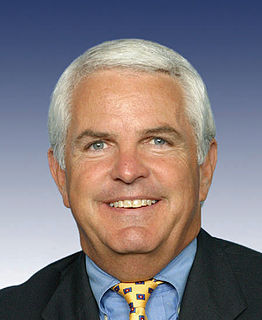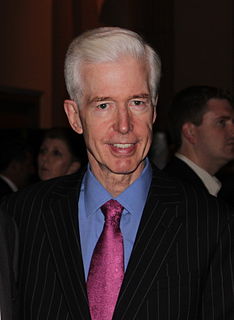A Quote by John Shadegg
Global fuel and consumption, however, is projected to increase by 100 to 150 percent over the next 20 years, driven largely by the rapidly growing Chinese and Indian economies; and this growth and this increase in demand will force prices even higher.
Related Quotes
How can we vote for a bill [S.744] that our own CBO says will reduce average wages in America for 12 years, increase unemployment for 7 years, and reduce per capita GNP growth over 25 years? A bill that will admit 30 million people to permanent legal status in the next 10 years? That will dramatically increase the annual immigration flow, and will double the guest worker flow?
Requiring the payment of higher wages will lead to a loss of some jobs and a raising of prices which drives companies to search for automation to reduce costs. On the other hand, those receiving higher wages will spend more (the marginal propensity to consume is close to 1 for low income earners) and this will increase demand for additional goods and services. Henry Ford had the clearest vision of why companies can actually benefit by paying higher wages.
The lack of manpower and infrastructural capacity in our Intermediate and Long-term Care sectors are problems that have been with us for the past 10 years. The demand for rehabilitation services will only increase with a rapidly ageing population. I hope the Ministry will share its roadmap to meet the rising demand for rehabilitation services.
Education spurs growth and unlocks potential. After all, a single year of primary education creates a 10 to 20 percent increase in a woman's wages later in life. Education lowers the risk of disease and decreases the likelihood that a child will fall into violence and crime. And a child born to a literate mother is 50 percent more likely to survive past age five. No country has achieved sustained growth without at least 40 percent literacy for its adults.
Humans have changed ecosystems more rapidly and extensively than in any comparable period of time in human history, largely to meet rapidly growing demands for food, fresh water, timber, fiber and fuel. This has resulted in a substantial and largely irreversible loss in the diversity of life on Earth.
Growing economies are critical; we will never be able to end poverty unless economies are growing. We also need to find ways of growing economies so that the growth creates good jobs, especially for young people, especially for women, especially for the poorest who have been excluded from the economic system.
The higher amount you put into higher education, at the federal level particularly, the more the price of higher education rises. It's the dog that never catches its tail. You increase student loans, you increase grants, you increase Pell grants, Stafford loans, and what happens? They raise the price.
Some of the most intriguing new research is in the area of extreme weather events and rainfall. A recent study by German scientists published in Climatic Change projects that extreme precipitation will increase significantly in regions that are already experiencing extreme rainfall. Man-made global warming has already increased the moisture content of the air worldwide, causing bigger downpours. Each additional degree of temperature increase causes another seven percent increase in moisture in the air, and even larger downpours when storm conditions trigger heavy rains and snows.


































